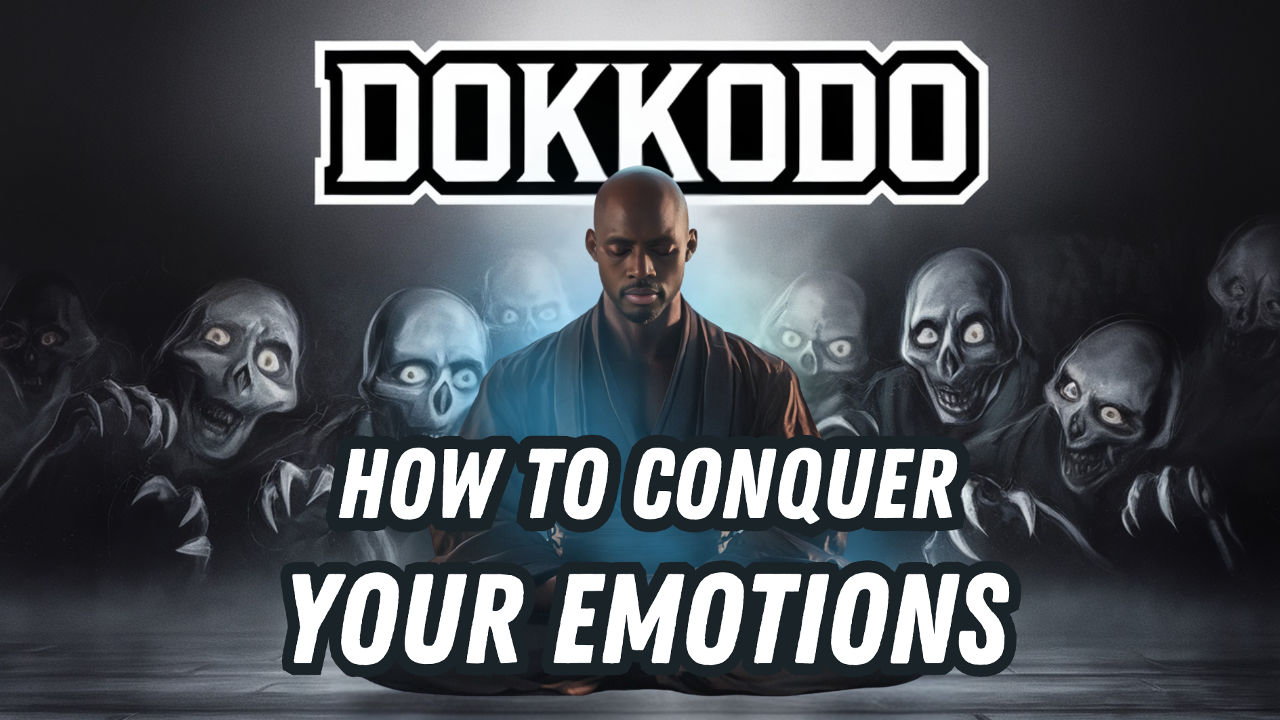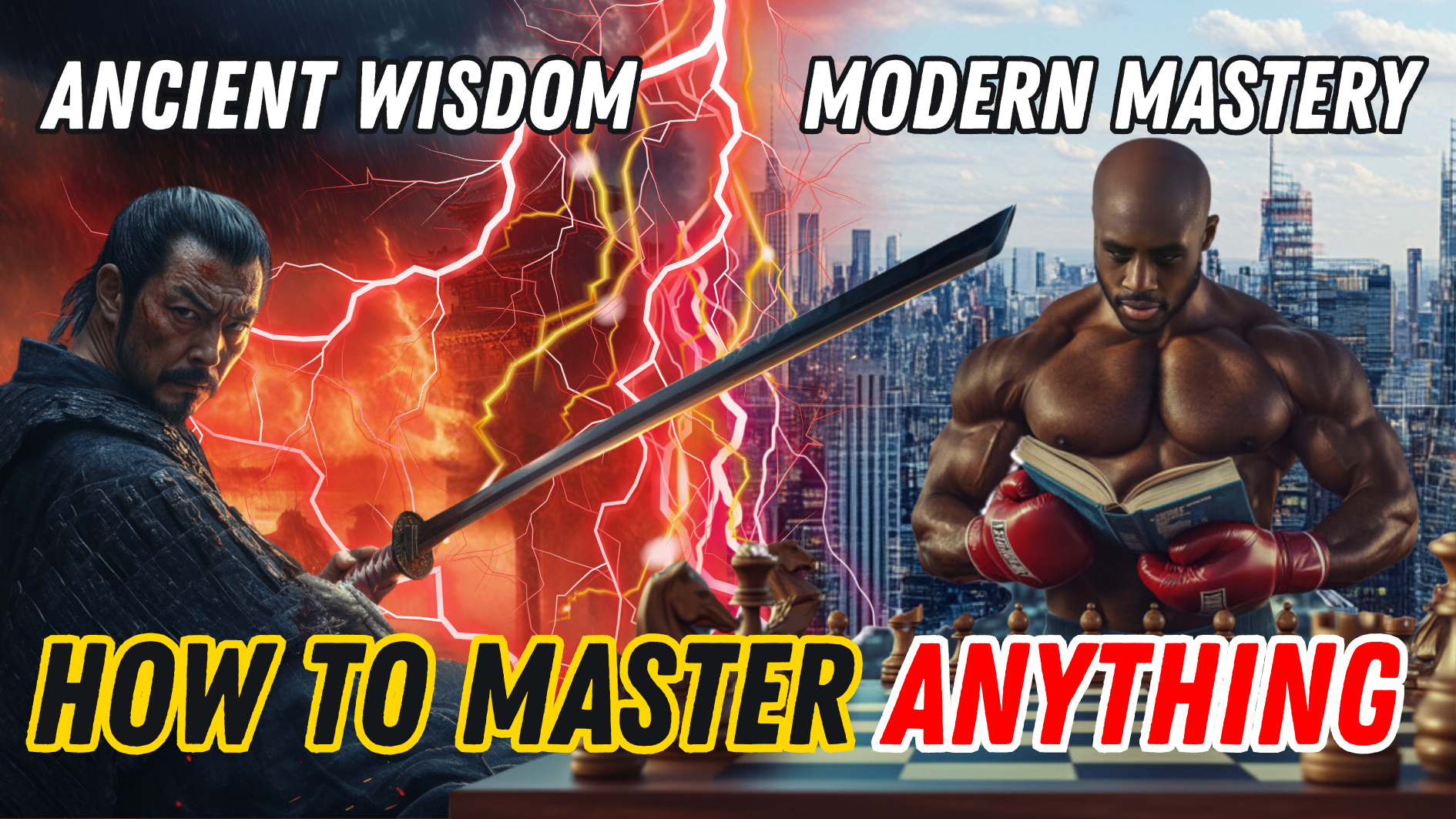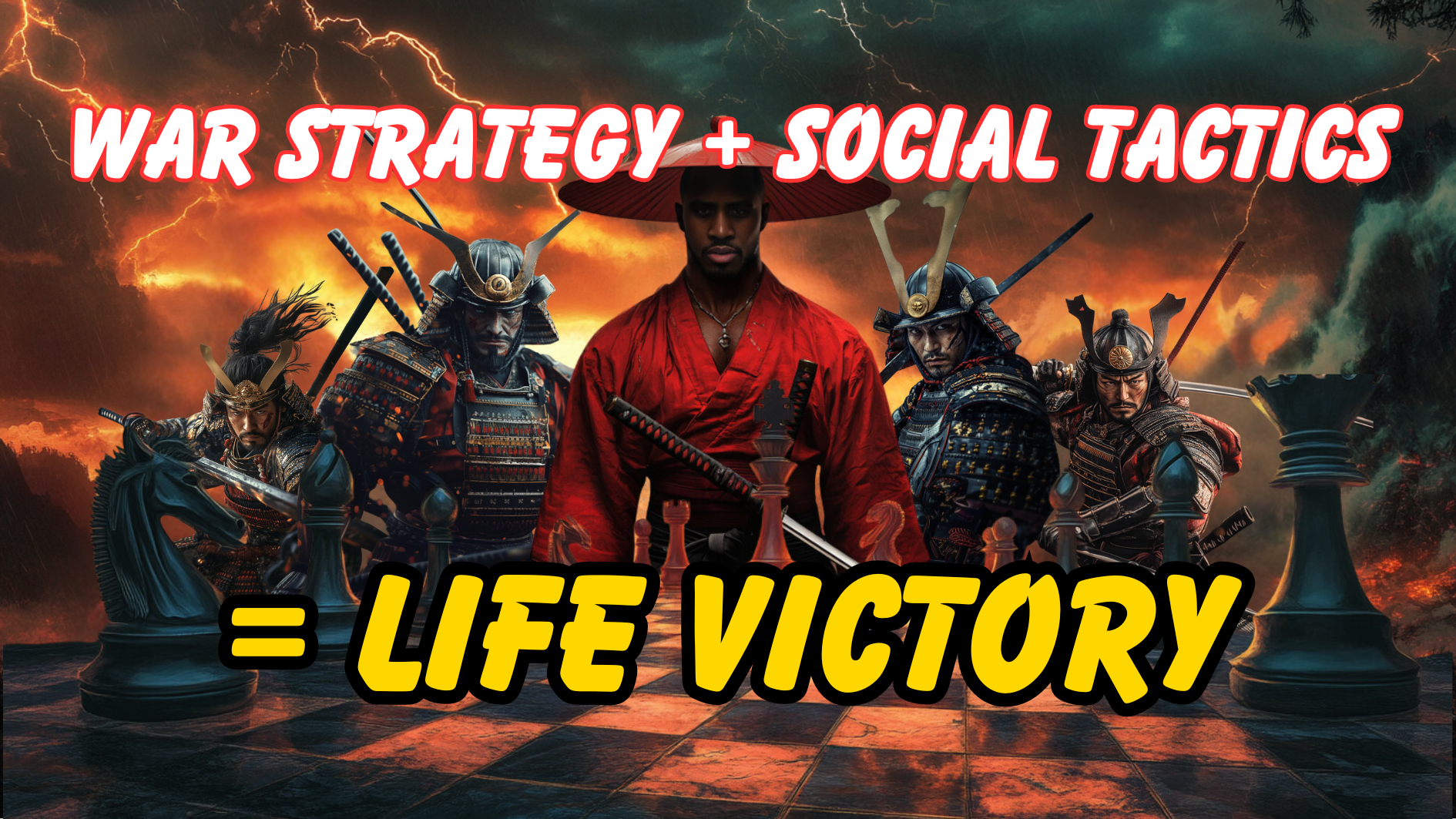I just finished reading “The Book of Five Rings” by Miyamoto Musashi. The book is a text on sword fighting strategy written by Japanese swordsman Miyamoto Musashi in the year 1643.
Although we are well beyond the age of swords, the strategic wisdom laid out in The Book of Five Rings is timeless and has a wide array of applications in the modern world.
I’ve quoted the 10 most powerful passages from the book on strategy, discipline, and combat that I believe anyone can get a lot out of today. I’ve also have a solid breakdown of the book helped me to learn here.
You can also watch the video.
1) The spirit of The Way and strategy
Even if a man has no natural ability he can be a warrior by sticking assiduously to both divisions of the Way. Generally speaking, the Way of the warrior is resolute acceptance of death.
When Musashi speaks of “The Way”, he is referring to the way of strategy. Strategy is the ability to plan for the future in such a way that you’re able to maximize any benefits and minimize any losses. A great strategist is indistinguishable from an accurate fortune teller.
You don’t have to be a great strategist though. You simply have to be willing to look at your life with a strategic mindset. This boils down to three things:
- Consider the 2nd and 3rd order effects of your actions
- Do not react quickly to your first emotion
- Think about what other people want (or don’t want) and tailor your approach accordingly
If you did just those things, you’d be able to create more opportunities, have fewer problems, and be overall more satisfied in your life. Your particular skill set doesn’t matter nearly as much as your ability to live in a strategic manner.
Though Musashi talks of the acceptance of death here, this is simply the natural outcome of living strategically. You realize that you are going to die and there is nothing you can do about it. Therefore, you make strategic decisions that allow you to get the most out of your short time on this planet.
If you live strategically, it’s very difficult to have a problem. At the very least, it becomes nearly impossible to be surprised by them.
2) Deep ability vs shallow skill
Recently there have been people getting on in the world as strategists, but they are usually just sword-fencers.
Musashi speaks often in The Book of Five Rings about the problem with favoring one weapon. It reduces your effectiveness if you don’t have that weapon and it makes you shy away from situations where you won’t be able to use it.
When you rely on one weapon, you haven’t embraced strategy. You’ve only embraced the tactics that allow you to demonstrate skill with that particular weapon in a relatively limited surrounding.
Applied modernly, watch out for people who claim to have a deep general understanding, but they only have shallow specific skills or—even worse—temporarily visiting luck. We see this in a few commercial spaces on the internet. For example:
- Someone makes money online with one product. Now they market themselves as an entrepreneur teaching you entrepreneurship.
- Someone got laid a few times in college at a frat party. Now they market themselves as a dating coach teaching you how to get laid.
These people aren’t strategists. They’re just sword-fencers.
3) Teachers need students; students need teachers
The teacher is as a needle, the disciple is as thread.
Teachers need students just as much as students need teachers. You can’t be a teacher without a student and you can’t be a student without a teacher. It doesn’t matter what the nature of the student and teacher are. The fact remains that they both need to exist.
Just as the needle gives the thread purpose and direction, the thread does the same thing for the needle.
If you want to learn something better, attempt to teach it. It will very quickly humble you because as you develop mastery, you tend to forget what it was like to not have it.
If you want to be a better teacher, make sure that you never forget what it’s like to be a student. The best way to accomplish this is to occasionally learn a new skill. This will keep you humble.
You should not have a favourite weapon. To become over-familiar with one weapon is as much a fault as not knowing it sufficiently well. You should not copy others, but use weapons which you can handle properly. It is bad for commanders and troopers to have likes and dislikes. These are things you must learn thoroughly.
It’s dangerous to neglect any aspect of your development. This leads to a fundamental imbalance that leaves you vulnerable. You must strive to develop yourself as evenly as possible because you’re only as strong as your weakest point and only as disciplined as your most tempting vice.
Also, keep in mind that the difficulty of a task is irrelevant if it’s vital to your success. When you remember this, the last two lines of this quote really come into view. How you feel about something—positively or negatively—should not affect the energy you put forth into attaining or accomplishing it if it’s required to reach your goal.
The insistence on things being enjoyable is at best, a major weakness and at worst, a fatal liability.
4) Perception is greater than sight
Perception is strong and sight weak.
Just because you have eyes doesn’t mean you really see any more than having ears means you can actually hear. Anyone who isn’t blind or deaf is capable of seeing or hearing, but to truly make sense of the world around you, you must perceive and listen.
This is not just a semantic difference.
If you are considered “perceptive”, then you’re capable of seeing more than what others see. If you’re a good listener, you absorb more from the same conversation than other people do. We aim for perception because it allows us to read between the lines, discover intent, and discern the true essence of things.
Aim to develop your perception so you aren’t fooled by what the world shows you.
Boxing Lessons on Grit, Resilience, and Antifragility
In this e-book, I teach you 20 mindset lessons I learned from my 13-1-1 professional heavyweight boxing career.
Use these to conquer any challenges you face, in the ring or in life.
Learn how to develop the mindset of a fighter, from a fighter, so you can win the battles you face.
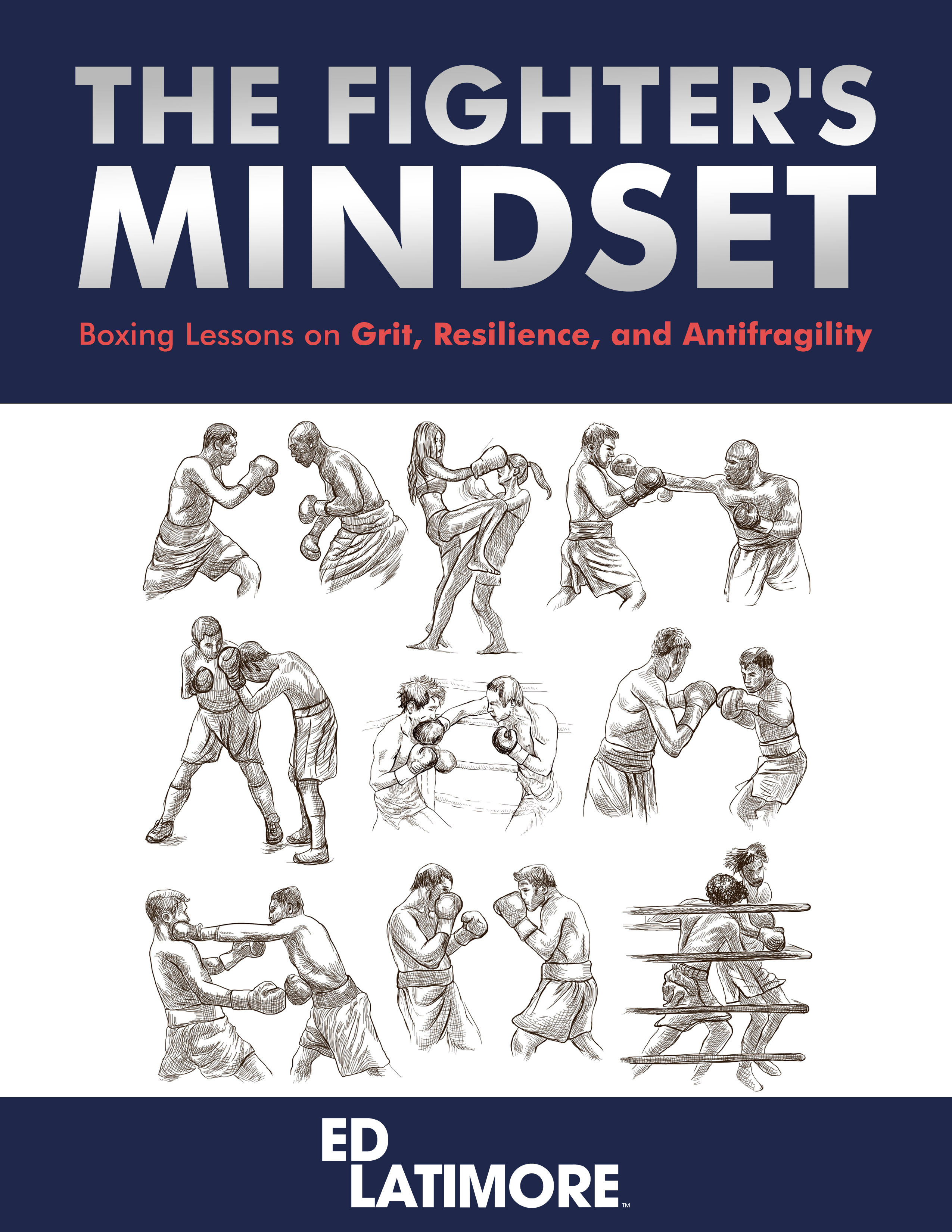
5) Change your perspective to solve problems
In strategy it is important to see distant things as if they were close and to take a distanced view of close things.
When you can perceive a thing from all angles and distances, all mysteries will vanish. Many people become stuck in their perception and are thus limited. It becomes impossible for them to ever see to understand a situation or person.
It may feel like more work to take a closer look when viewing from afar or to zoom out and in close, but it’s in this diligence of inspecting your surroundings that you’re able to learn as much as you can about them.
Approach people this way as well. View strangers as if they are close friends and close friends as if they were strangers. You learn something that your previous proximity had blinded you to.
Learn from more books in less time with Shortform
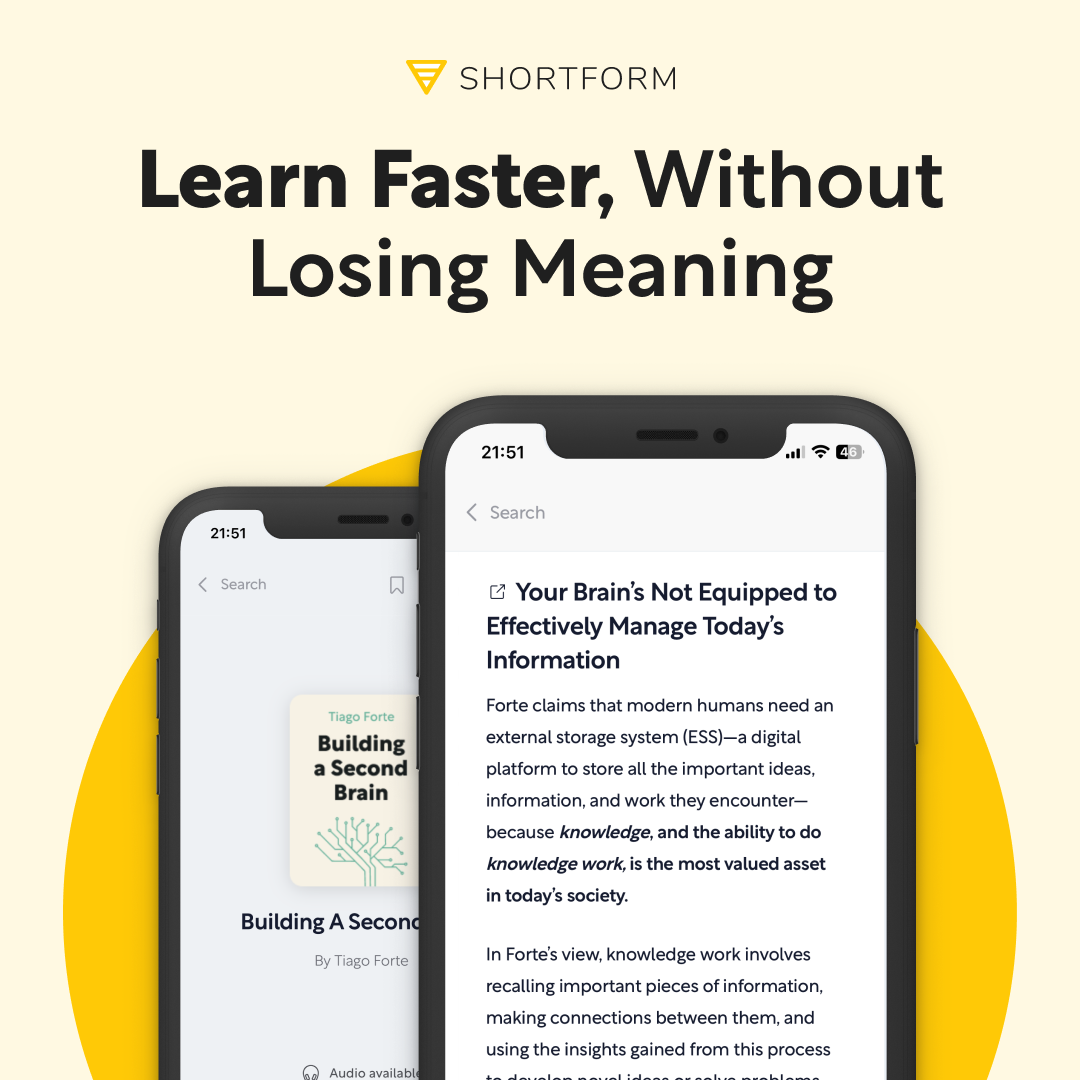
I don’t normally think you should read the summary instead of the entire book, but Shortform has completely changed my mind.
Their summaries are high-level works of art, complete with commentary and additional insights to help you bridge together information and concepts presented in the books.
But that’s not even the best part…
Each summary has an audio version so that you can listen on the go. You’re able to enjoy the summaries the same way you enjoy your favorite podcast! And they cost less than you’d spend on just one book.
Save time and money with Shortform. Use the link below to save 20%
Check out Shortform!6) Life is a marathon; Not a track meet
Step by step walk the thousand-mile road.
Be patient and stay committed to your goal. This is another variation of the more popular saying, “The journey of 1000 miles begins with 1 step.” The idea is the same in both instances: it tends to take a while to accomplish something worthwhile, but you have to stay diligent and remain consistent.
7) Process versus outcome
Even if you kill an enemy, if it is not based on what you have learned it is not the true Way.
This is a brutal lesson in outcome vs process thinking. Musashi is telling us that it doesn’t matter if you have a favorable outcome if you attained it following the wrong process. At best, you were victorious despite committing many errors. At worst, you got lucky and you’ll misinterpret that for skill.
The former condition is fixable and teachable. However, if you misinterpret luck for skill, then you will think that your skill level is higher than it really is and you will get destroyed when real competition shows up.
Refining the processes tends to produce refined outcomes. The inverse doesn’t tend to be true.
8) Musashi teaches fundamental strategic principles
Because you can win quickly by taking the lead, it is one of the most important things in strategy.
In strategy, you have effectively won when you forestall the enemy.
I put the last two together because to me, they both reflect the most important thing to do when considering a strategy: gain time and/or space against your opponent/goal. The best way to do this is to simply act first and maintain that lead. The second best way is to make your opponent have to stop or significantly slow down.
This tactic is especially effective in zero-sum games. You don’t need to be the fastest or the best. You simply need to be faster or better than your competition. This opens up a variety of strategic ideas to achieve your goal that were not at once obvious.
It also highlights the importance of speed. This is the most valuable attribute because it not only gives you an initial advantage, but it’s one that can’t be easily compensated for or eroded with another strategy. There is effectively no difference between you being faster than your opponent and your opponent not moving. If you can cause the latter, the former will appear to be so anyway.
Recap of the 10 best quotes and ideas from “The Book of Five Rings” by Miyamoto Musashi
- “Even if a man has no natural ability he can be a warrior by sticking assiduously to both divisions of the Way. Generally speaking, the Way of the warrior is resolute acceptance of death.”
- “Recently there have been people getting on in the world as strategists, but they are usually just sword-fencers.”
- “The teacher is as a needle, the disciple is as thread.”
- “You should not have a favourite weapon. To become over-familiar with one weapon is as much a fault as not knowing it sufficiently well…”
- “Perception is strong and sight weak.”
- “In strategy, it is important to see distant things as if they were close and to take a distanced view of close things.”
- “Step by step walk the thousand-mile road.”
- “Even if you kill an enemy, if it is not based on what you have learned it is not the true Way.”
- “Because you can win quickly by taking the lead, it is one of the most important things in strategy.”
- “In strategy, you have effectively won when you forestall the enemy.”
Boxing Lessons on Grit, Resilience, and Antifragility
In this e-book, I teach you 20 mindset lessons I learned from my 13-1-1 professional heavyweight boxing career.
Use these to conquer any challenges you face, in the ring or in life.
Learn how to develop the mindset of a fighter, from a fighter, so you can win the battles you face.



